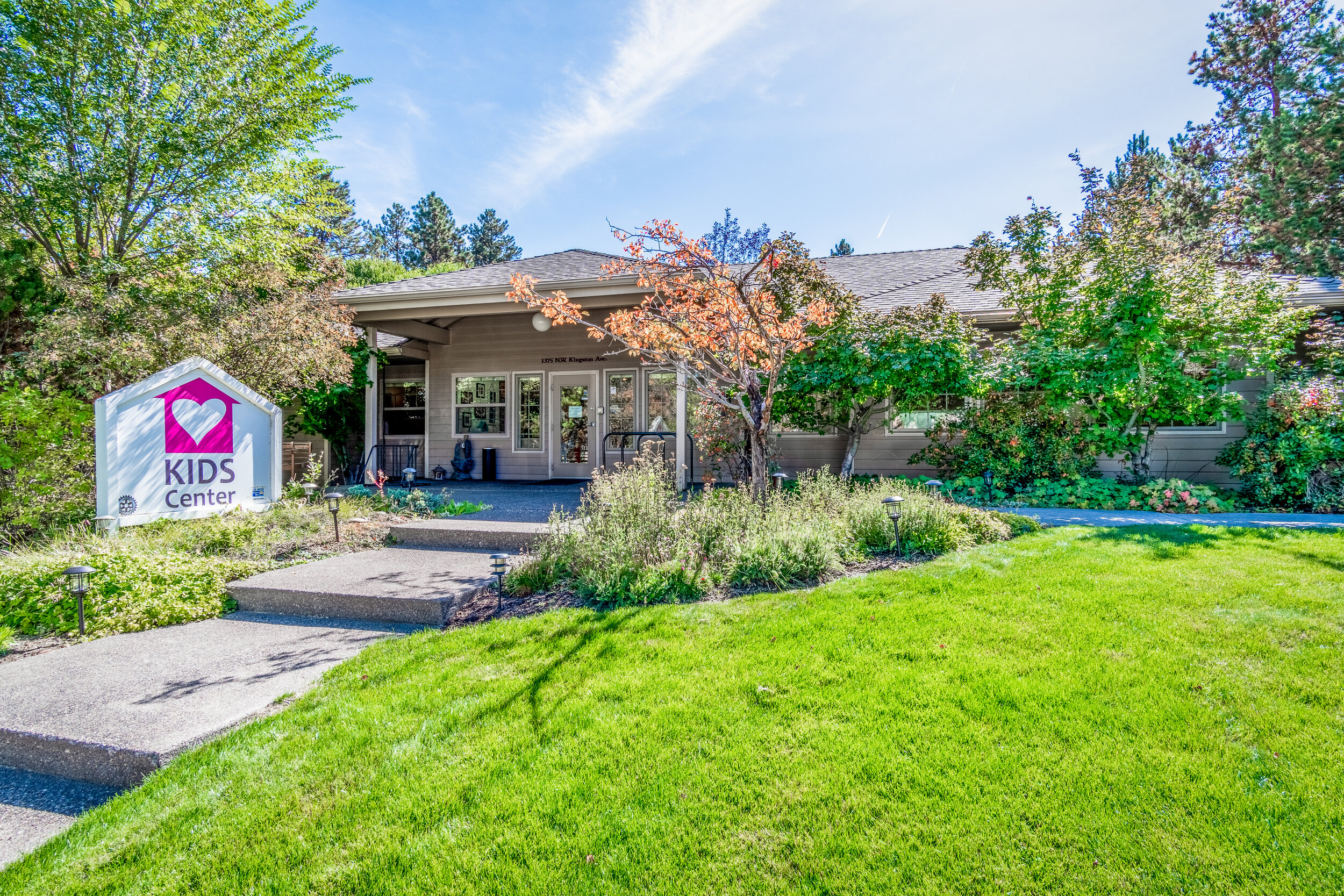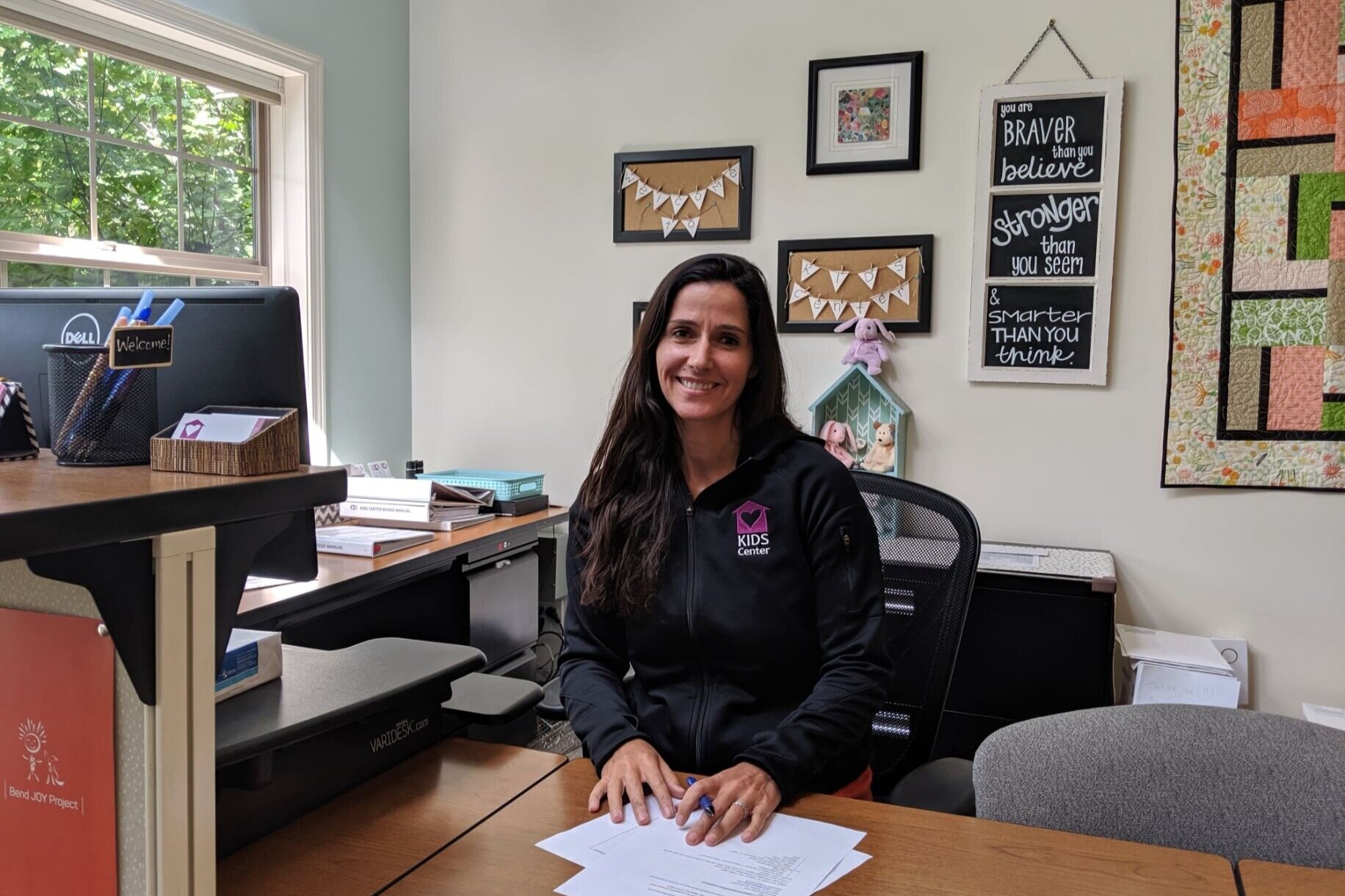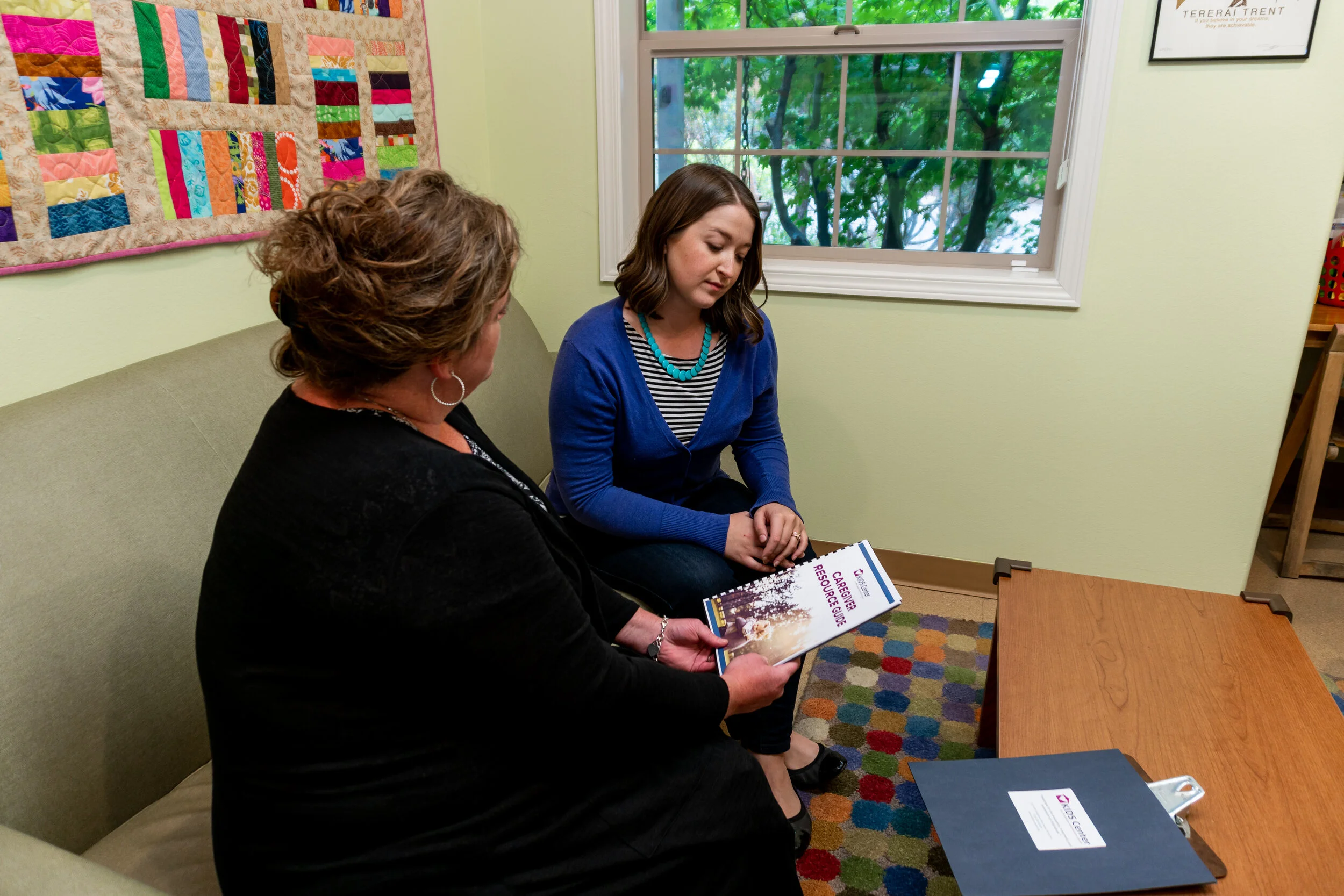
Your first visit.
Your first visit: What to expect
Our goal is to give your child and family a safe and supportive experience when you come to KIDS Center. If you are the primary caregiver, and you are bringing a child to KIDS Center for an evaluation, it’s helpful to know what to expect. You can read about the eight stages of the evaluation process below.
KIDS Center provides all services free of charge. We also provide accommodations for clients who do not speak English. If you have any questions, need assistance, or want to request an interpreter or translation services, please contact us.
We are here for you!
1. Expect a warm welcome.
KIDS Center offers a safe and caring environment for children to share their stories and experiences. Everyone who enters the building is welcomed and treated with respect and compassion. Our staff will do everything we can to help you and your family feel comfortable throughout your visit.
2. Bring your paperwork.
You can make the most of your time at KIDS Center by completing your paperwork prior to your visit. We can mail or email paperwork to you, or you may download and print paperwork off our website. Complete your paperwork to the best of your ability. Our team will review it with you during your visit.
3. Settle in and meet your team.
When you arrive, we will lead you to one of our private family waiting rooms, where you can enjoy snacks and entertainment.
Soon after you arrive, you will meet your evaluation team, consisting of a medical provider, a forensic interviewer, a family advocate, and a therapist who will help guide you through the evaluation.
Our evaluation team will meet with you, the primary caregiver, to discuss the medical and social history of your child and family. This helps us better understand your child’s needs and family needs. During your team meeting, one of our staff members will be available to supervise and care for your child.
4. Share in a Child-Friendly Interview
At this stage of your visit, caregivers and other family members remain in the family waiting room. We introduce the child to a forensic interviewer. The forensic interview process is child-friendly. We work hard to put each child at ease and allow them to tell their stories in an understanding, non-judgmental environment. All of the questions we ask are non-leading. We let each child know that they can stop the interview at any time.
5. Receive a Child-Oriented Medical Exam
After the interview, children receive a head-to-toe medical exam. The exam is a non-invasive process. A qualified medical professional addresses any abuse-related concerns and concerns about the child’s general health. Children are empowered to make all decisions about their bodies throughout the exam.
6. Get Support From Your Family Advocate
Your family advocate will help answer any questions you may have and provide emotional support. They will connect you with community resources to support your family and help you navigate next steps. Following your child’s evaluation, your family advocate will be available to you for as long as you want their support.
7. Gain Insight with a Therapist
You can also meet with a therapist during this time. They can provide information and answer questions around your child's behaviors and symptoms. They can guide you on the best way to support your child through their healing process. A therapist can also speak about the effects of trauma on both the child and caregiver. Together, you can explore whether therapy would be appropriate for your child and/or family. If you would like to pursue therapy, we will help you schedule an appointment.
8. Learn about the Evaluation
After the interview and medical exam are complete, your evaluation team will meet with you once more. The team will share what they learned throughout the evaluation and discuss next steps and recommendations. We’ll give you resources and contact information should you have any questions after your visit. Remember, your family advocate is always available to help.







